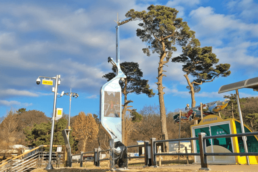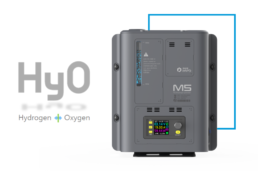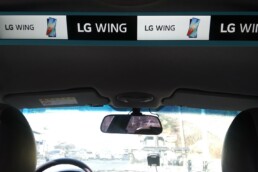South Korea is home to tech giants like Samsung and LG. Therefore, it is understandable that Koreans are very tech-savvy and eager to test the latest tech trends. It makes South Korea an excellent testbed for fintech startups looking to generate disruptive products and solutions that will become game-changing businesses. With AI-based technologies, improved government regulations, and the willingness of financial institutions in Korea looking to build partnerships with fintech startups in Korea, South Korea is primed for a fintech disruption. The country offers a robust infrastructure built from the ground up. Therefore, fintech startups can be more customized, innovative, compliant, secure, and consumer-focused when using South Korea as a testbed before going global.
South Korea – Best Testbed for Fintech Startups
South Korea has one of the highest levels of smartphone penetration, bank accounts, credit cards, and internet connectivity. The advanced infrastructure allows for a fully data-based society familiar with digital financial services. A lot of the innovation for fintech in Korea has been credited to South Korea’s open banking system, which launched in December 2019. The initiative allowed fintech firms to access banks’ payment networks and pay lower transaction fees through several open API initiatives. In addition, South Korea is also known for being the first movers when it comes to technology. For example, they were the first country to bring 5G internet to smartphones. Global fintech companies looking to use South Korea as a testbed are in luck as South Korea offers one of the best Fintech accelerator programs worldwide.
Seoul Fintech Lab – Fintech Accelerator Program
South Korea ranked 26th in the 2021 Findexable’s Global Fintech Rankings list, showing that the fintech ecosystem is no longer in its infant stage. Many developments and achievements can be attributed to the Seoul Fintech Lab, which runs a Fintech accelerator program. Seoul Fintech Lab is located in the financial hub of Korea (Yeouido) and allows fintech startups to grow their network in the financial sector in Korea. Additionally, the accelerator provides access to innovators in the fintech space. Below we list a few other reasons South Korea is an excellent testbed for fintech startups. In addition, we state a few examples of how global fintech startups have leveraged Seoul Fintech Lab’s support to strengthen their business.
Partnership with Korean Banks
South Korean banks partner and invest with fintech startups to collaborate on new projects. This allows them to drive innovation for future products and services. Many banks in Korea have very conservative lending restrictions, which open opportunities for fintech startups in the lending market. One great example is AIZEN Global, a startup based in Singapore that developed an AI financial technology platform called CreditConnect AI.
AIZEN Global

AIZEN Global converts data into credit-related information by substituting data for collateral. The startup helps eCommerce SMEs access digital financial services based on data from the entire value chain. This includes inventory purchasing, warehouse management, logistics, sales, and returns. AIZEN Global learned there was a huge unmet demand for credit from eCommerce SMEs. In addition, banks in Korea were eager to expand to the growing eCommerce market. Therefore, Korean banks were willing to explore business opportunities with AIZEN Global, which already had solid references and a globally validated technology.
By joining Seoul Fintech Lab, AIZEN Global joined different fintech conferences and networking events between startups, investors, and corporate partners. SFL has a broad and deep network in the financial ecosystem and the government, making them a crucial ecosystem partner for founders running a fintech company.
Financial Regulatory Sandbox
The Financial Services Commission (FSC) opened a financial regulatory sandbox in 2019. The sandbox allowed startups to test new forms of financial services without regulations. Therefore this makes the financial regulatory sandbox the perfect testbed for fintech startups. These regulatory exemptions apply for a 2-year period which can be renewed once. The sandbox program offers support to services and products early in development. This makes the sandbox a perfect testbed for fintech startups testing new unregulated technologies. Since its launch, the financial regulatory sandbox has nurtured over 140 innovative financial service providers. One of the fintech startups interested in the sandbox program is Build Block, a global real estate investment platform based in the United States.
Build Block
 Build Block aims to solve the challenges of cross-border investment and international investments. They chose to come to South Korea because the US has always been at the top of the list for Koreans eager for overseas real estate investment. Until now, individual investors have bought and sold properties in the US through local agents thousands of miles away. Since they are geographically distant, investors rely heavily on a person far away without transparent paperwork or process. Therefore this makes the entire process very ambiguous and risky.
Build Block aims to solve the challenges of cross-border investment and international investments. They chose to come to South Korea because the US has always been at the top of the list for Koreans eager for overseas real estate investment. Until now, individual investors have bought and sold properties in the US through local agents thousands of miles away. Since they are geographically distant, investors rely heavily on a person far away without transparent paperwork or process. Therefore this makes the entire process very ambiguous and risky.
Build Block can offer a transparent and safe investment process to individuals who wish to invest in the US real estate market. Investors will track the investment process and download necessary documents from their platform. Once the investment starts, investors can monitor their investment or communicate with their tenants. This depends on the choice of investment models.
Why join the financial services sandbox?
The purpose of joining the financial services sandbox is so they can create an equity crowdfunding platform for real estate. In Korea, the regulation prohibits individuals from investing in equity crowdfunding for real estate. However, through the sandbox program, Build Block can test out this platform with the support of the Korean government.

Build Block has been able to thrive in South Korea even during the pandemic. During the pandemic, they got massive help from the Seoul Fintech Lab, when most of their access was heavily limited. For example, SFL was able to open doors to international investor networks to meet with global investors remotely during the COVID-19 pandemic.
Having the Seoul Fintech Lab brand next to us gave a lot of credibility to our customers. With Seoul Fintech Lab as our partner, investors entrusted us with their investment, and we were able to carry out our service as promised.
Localization Support
Localization can be difficult for many startups looking to enter South Korea. Koreans place a lot of importance on building strong local relationships. However, how can a foreign startup establish business relationships and foster connections with Korean companies? This was one of the key issues for Prive Technologies, a fintech startup based in Hong Kong and the creator of an AI-driven wealth management platform that delivers financial products and services from multiple financial institutions.
Prive Technologies
 Prive Technologies feel Korea is a great testbed for fintech startups due to its highly digitalized environment and high interest in digital transformation regarding wealth management and global investment products. However, they didn’t have a strong network in Korea or a Korean administrative staff. Seoul Fintech Lab provided advisors who helped them with HR, accounting, and building relationships. In addition, the program organized networking events that led to different ventures, opportunities, and collaborations with fintech firms.
Prive Technologies feel Korea is a great testbed for fintech startups due to its highly digitalized environment and high interest in digital transformation regarding wealth management and global investment products. However, they didn’t have a strong network in Korea or a Korean administrative staff. Seoul Fintech Lab provided advisors who helped them with HR, accounting, and building relationships. In addition, the program organized networking events that led to different ventures, opportunities, and collaborations with fintech firms.
As Prive is relatively new in Korea, we needed advisors who could coach us on HR and accounting. As well as help us build relationships. SFL was able to help us connect with the right parties, which we are actively keeping in touch with.
South Korea is an excellent testbed for fintech startups, and by joining Seoul Fintech Lab, entry into the Korean market will not be difficult. The program accepts fintech startups from all around the world. Some of their residents come from the US, Singapore, Hong Kong, Canada, China, Switzerland, the UK, Japan, Saudi Arabia, New Zealand, Cyprus, Brazil, France, Indonesia, Russia, and the Virgin Islands.
John
John is the Co-Founder of Seoulz. He has covered the Korean startup & tech scene for over eight years and has written over 700 articles regarding the Korean startup ecosystem. He has brought global attention to Korea's tech scene using Google SEO. Email him at john@seoulz.com
Related Posts
Top Fintech Marketing Hacks in South Korea
July 26, 2023
Startups in Korea developing AI-powered Chatbots
January 25, 2024






